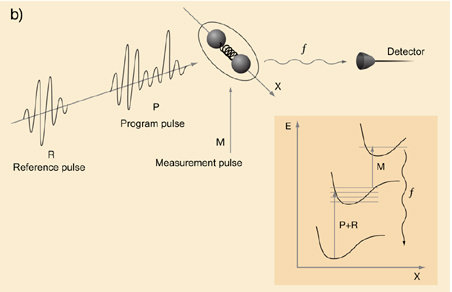Researchers in Japan was carried out an experiment that yielded some pretty mind-blowing results: a single molecule can perform a complex calculation thousands of times faster than a conventional computer. The scientists did a test run of a discrete Fourier transform — a common calculation used in data compression, among other things — performed with a single iodine molecule transpired very well, putting all the molecules in your PC to shame.
Using quantum interference – the vibrations of the atoms themselves – the team was able to run the complete discrete Fourier transform extremely quickly by encoding the inputs into an optically tailored vibrational wave packet which is then run through an excited iodine molecule whose atomic elements are oscillating at known intervals and picked up by a receiver on the other side. The entire process takes just a few tens of femtoseconds (that’s a quadrillionth of a second). So we’re not just talking faster data flow or processing here; these are speeds that are physically impossible on any kind of conventional electronic device.
Although the calculation was extraordinary swift, the methods for handling and manipulating the iodine molecule are complex and challenging. In addition, it’s not entirely clear how such computational components would have to be connected to make something resembling a conventional PC.
Nevertheless, Ian Walmsley of the University of Oxford points out that the demonstration of such an astonishingly high-speed calculation shows that there is a great deal to be gained if physicists can overcome the difficulties in putting single-molecule computation to practical use.
Source:Science Daily.


![Read more about the article Digg founder Kevin Rose Will No More Stay[Confirmed]](https://thetechjournal.com/wp-content/uploads/2011/03/digg-logo.jpg)